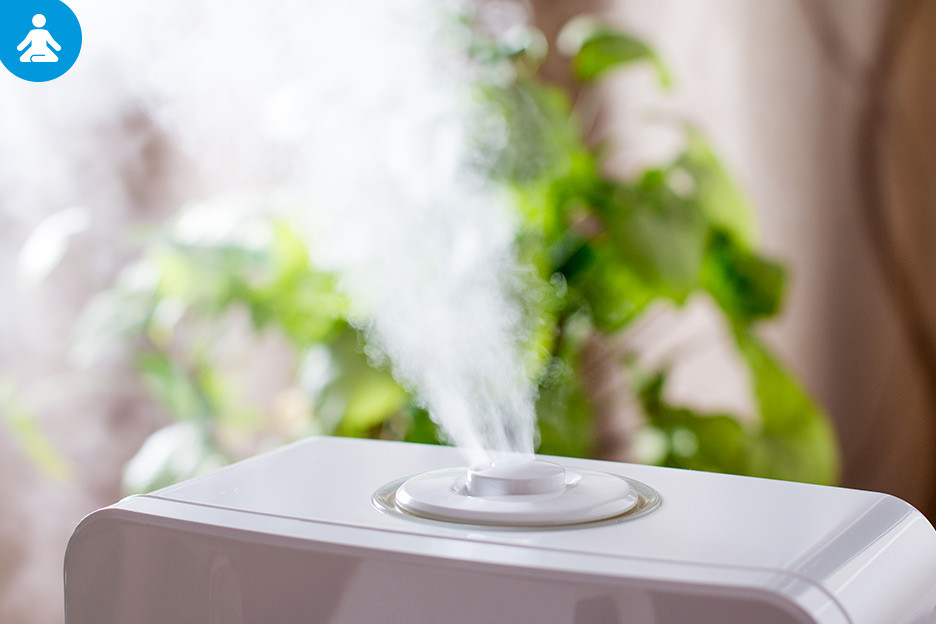Is the air you’re breathing good enough? Winter air is notoriously dry, causing the humidity levels in houses to drop below 50%. When this happens, illnesses flourish - the most common being asthma, colds, irritated sinuses and watery eyes. There is a simple solution: a humidifier. Let us help you find the one that best suits your needs.

1
Cool-mist humidifier
This is the most affordable type of humidifier. A motor forces water into a vapour, which is then dispersed into the air.
- Pros
This type of humidifier is very safe when it is properly maintained. It can also be used to cool the air a little during summer.
- Cons
Water must be changed every day to keep the humidifier free of harmful mould and bacteria.
2
Warm-mist humidifier
This type of humidifier uses an internal heating element that boils water before releasing vapour into the air.
- Pros
The warm mist will heat the air up slightly; nothing to sneeze at during our cold winters! Also, there are fewer risks of bacteria and mould as the boiling process kills waterborne bacteria and mould before it enters the air you breathe.
- Cons
It must be handled with care as the hot water can cause burns. Also, the noise made by the boiling water can be slightly disturbing, especially if used in a bedroom.
3
Ultrasonic humidifiers
These humidifiers use sound vibrations to create a choice of hot and cold, super fine mist (rather than vapour).
- Pros
They are quite silent and you can choose between cold or hot mist on most models.
- Cons
Water particles can leave a white dust—caused by mineral deposits—on floors and furniture. It is recommended to invest in a filter (often costly) or to use distilled water.
4
Ultraviolet (UV) humidifier
Depending on the model (hot or cold mist) these humidifiers use the same technologies as those previously mentioned, except that a UV component is added to them.
- Pros
Even if the humidifier releases cold mist, the UV rays work to destroy germs in the water.
- Cons
The bulb that produces UV rays must be replaced after a few months.
Several types of humidifiers are available in pharmacy. Your pharmacist can help you choose the one that best suits your needs and your budget. Your pharmacist can also explain you the benefits of using a humidifier at home, at the office or at the cottage. Don’t hesitate to ask for advice.
Tips for using your humidifier properly
Whatever type of humidifier you choose, it is important to follow these guidelines:
- Follow the cleaning instructions as recommended by the manufacturer. Neglecting to do so can cause or aggravate respiratory illnesses such as asthma, allergies and infections.
- Never use bleach to clean your humidifier as it causes more harm than good. Rather use the cleaning tablets provided by the manufacturer.
- All recent models use filters or cartridges that capture minerals and impurities. Change these at least as often as the manufacturer recommends it, as they protect your respiratory system.
- Tap water contains minerals that can create deposits in your humidifier. Prefer distilled water to help prolong the life of your filters or cartridges.
- Do not add essential oils or medicated products to the water in your humidifier. While they may smell good or seem to help clear your respiratory passages, they’re actually irritants and may cause health issues.
